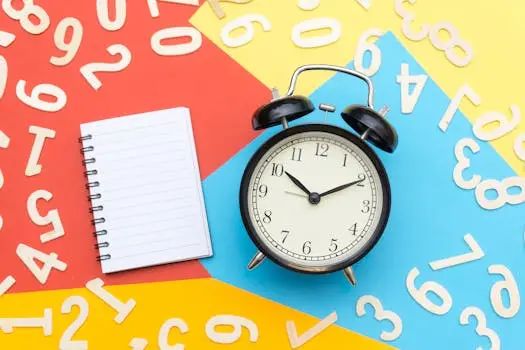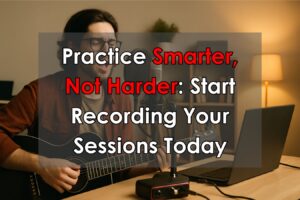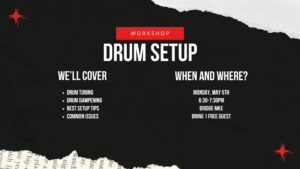Balancing music practice with a busy lifestyle can be challenging. However, by using your practice time strategically, you can still make significant progress, regardless of your skill level or instrument. Here’s how to create an effective routine to optimize your musical growth:
1. Define Clear Goals
Start each practice session with clear, achievable objectives. Whether it’s mastering a guitar riff, improving drum timing, memorizing piano chords, or enhancing vocal range, defining specific goals keeps you motivated and focused.

2. Schedule Consistent, Short Sessions
Consistency is key. Practicing daily, even for just 10-20 minutes, yields better results than sporadic, longer sessions. Short, frequent sessions reinforce muscle memory and maintain skills.
Tip for Parents: Help your child by scheduling music practice at consistent times each day. Consistency can become a habit, much like homework or bedtime routines.

3. Prioritize Quality Over Quantity
Effective practice involves mindful repetition. Break down challenging parts into smaller segments, practicing them slowly and deliberately before gradually increasing tempo or difficulty.
Tip for Kids: Using practice charts or reward systems can motivate children to practice regularly and celebrate their achievements.
4. Structure Your Time Wisely
Warm-up: 3-5 minutes of simple exercises.
Focused Practice: 10-15 minutes tackling specific goals.
Creative Exploration: 5 minutes improvising or experimenting, keeping practice enjoyable and engaging.
5. Minimize Distractions
Ensure your practice environment is quiet and distraction-free. Silence phones, close unnecessary apps, and communicate your practice schedule to those around you.
Tip for Parents: Create a designated, distraction-free practice area in your home to enhance your child’s focus and effectiveness.

6. Track Your Progress
Keep a practice journal or use apps like in our Members Online Portal to log your progress. Regularly review your notes to identify areas of improvement and adjust your goals accordingly.
7. Incorporate Active Listening
Even outside practice sessions, actively listen to music related to your goals. This helps internalize rhythms, melodies, and stylistic nuances, reinforcing your practical skills.
Tip for Parents: Play recordings of the pieces your child is learning during car rides or downtime to reinforce lessons and keep music engaging and fun.

By following these steps, busy musicians—and parents of budding musicians—can make meaningful strides, staying motivated and efficient in their musical journey.
More Blogs

Rhythm Guitar Mastery: Strumming and Riff Techniques for Pop and Country
You know that feeling when a song just clicks — when the beat feels like it’s syncing with your heartbeat, and the chords seem to

Home Recording on a Budget: Recording Your Practice Sessions
You’ve been working hard on your music—nailing that tricky chord change, perfecting your drum fills, polishing your vocals. But how do you really know if

Drum Setup Workshop
Drum Setup Workshop We are announcing our next upcoming workshop! Many drummers struggle with tuning and best setup practices. With so many variables and no